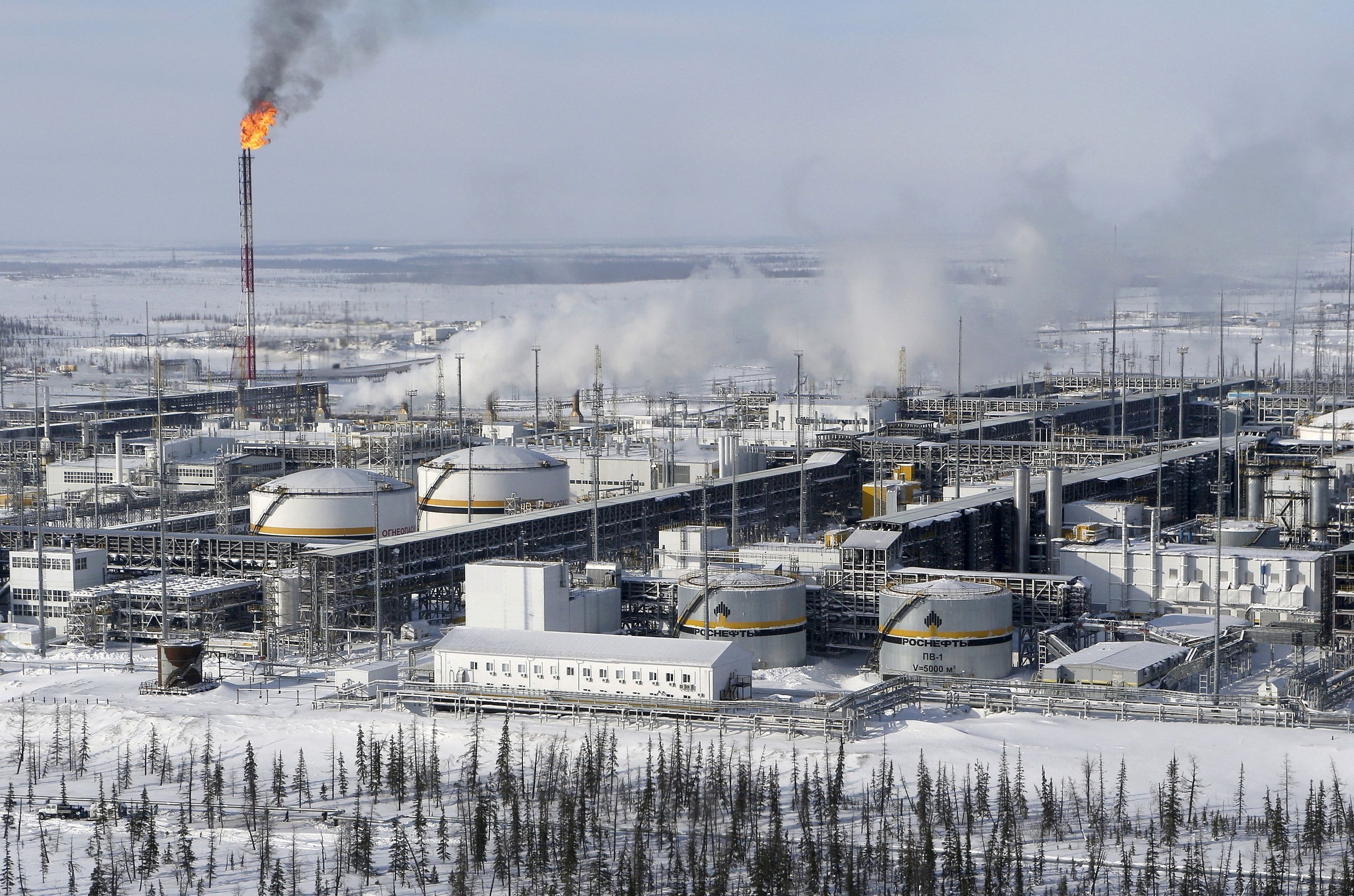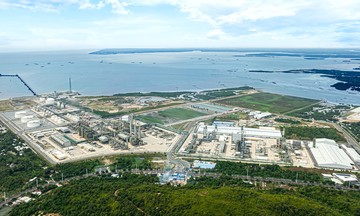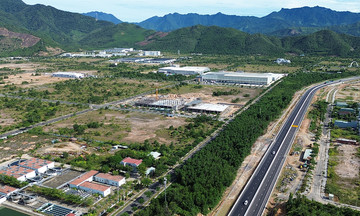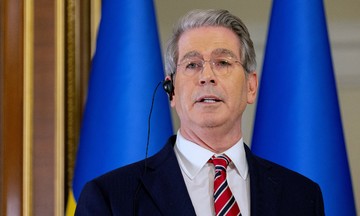On 6/8/2025, former US President Donald Trump signed an executive order increasing tariffs on goods from India by 25%, bringing the total to 50%, citing the country's continued purchase of Russian crude oil. This is among the highest tariff rates applied to US trading partners and went into effect on 27/8/2025.
The same day, Trump said he might announce additional tariffs on China for the same reason. However, the final decision depends on the actual situation. "I can't say for sure yet. We've done it with India and plan to continue with some other countries. One of them could be China," he explained.
According to CNBC, this is the latest signal that Trump is making good on his threat to sanction countries buying Russian oil. The goal is to pressure Russia to end the war in Ukraine, as energy exports contribute significantly to Moscow's budget.
After the war began in early 2022, Russian oil was shunned by the West and subjected to numerous sanctions. India and China gradually became the largest buyers. DW, citing data, reported that between 2021 and 2024, India's imports of Russian oil increased 19 times to 1.9 million barrels per day. Meanwhile, China's imports increased by 50% to 2.4 million barrels per day.
Trump said the new tariffs would take effect after 21 days. This would give Russia and India time to negotiate with the US on import duties. He also plans to announce additional secondary sanctions against other economies with oil trade relations with Russia. The White House said details would be released on 8/8/2025.
 |
An oil field of Rosneft in Krasnoyarsk, Russia. Photo: Reuters |
An oil field of Rosneft in Krasnoyarsk, Russia. Photo: Reuters
Analysts believe that if China and India's purchase of Russian oil changes under pressure from the US, the impact will extend beyond these countries.
Petras Katinas, an energy researcher at the Centre for Research on Energy and Clean Air (CREA), told DW that India saved $33 billion in energy costs between 2022 and 2024. This was because Moscow significantly lowered prices as Europe reduced its dependence on Russian oil and gas.
India's long-standing policy is to balance relations with the US, Russia, and China without favoring any side, Katinas said. This is the basis for the decision to buy cheap Russian oil, as New Delhi prioritizes "energy security and reasonable prices."
Analysts suggest that Trump's 25% secondary tariffs could cause India to reduce its purchases of Russian oil. Additional sanctions would worsen the situation.
Indian media estimate that stopping these purchases could increase the country's fuel costs by $9-11 billion annually. On 6/8/2025, India's Ministry of External Affairs called the new US tariffs "unfair and unreasonable."
India no longer benefits as much from buying Russian oil as it did in 2022, when it received discounts of $15-20 per barrel. Currently, the discount is only around $5, according to Sumit Ritolia, an oil analyst at data firm Kpler.
However, South Asian refineries continue to buy Russian oil. In June, imports reached an 11-month high of 2.08 million barrels per day. This accounts for 44% of India's total oil imports, reflecting a strategy of geopolitical risk hedging and price competition.
Ritolia predicts it could take Indian businesses about a year to reduce their dependence on Russian oil if forced to do so. Late last month, state-owned refineries such as Indian Oil, Hindustan Petroleum, Bharat Petroleum, and Mangalore Refinery Petrochemical stopped buying more Russian oil due to reduced discounts and increasing pressure from Trump.
China was also mentioned by Trump as a potential target for secondary tariffs. It is currently Moscow's largest oil buyer.
However, analysts believe Beijing is unlikely to face increased tariffs. Its total trade with the US is 4 times larger than India's. In addition, its large economic scale and advantage in rare earth supplies will help Beijing restrain Trump's stance. The US currently imposes a 30% import tariff on most Chinese goods until 12/8/2025.
Nevertheless, if both India and China stop buying oil, Russia's economy will face further pressure. According to Dmitry Medvedev, Deputy Chairman of the Russian Security Council, Russia is currently under about 30,000 sanctions from the West.
Russia's budget is sensitive to oil price fluctuations, as the oil and gas sector contributes about 30% of total revenue. Meanwhile, military spending is increasing rapidly. Politico, citing a report by the International Institute for Strategic Studies (IISS), said last year Russia's military spending was 13,100 billion rubles ($145.9 billion), equivalent to 6.7% of GDP. This figure is a 40% increase compared to the previous year.
Meanwhile, a report by the Russian Ministry of Finance shows that oil and gas revenue in July fell sharply for the third consecutive month to 787 billion rubles. This was due to falling oil prices and a strengthening ruble. In the first seven months of the year, this figure decreased by 19% compared to the same period last year, to 5,520 billion rubles.
For the global market, new US sanctions could cause an oil price shock and disrupt trade flows, similar to early 2022. "If India hadn't bought Russian oil in 2022, the price could have reached $120, or even $300 a barrel," Ritolia said. Brent crude oil was only around $80 before the war, then surpassed $100 when the conflict broke out.
Analysts have long warned that if Russian oil supplies suddenly drop sharply, prices will soar as affected countries rush to find alternative sources. Even as the Organization of the Petroleum Exporting Countries (OPEC) has continuously increased production since April of this year, adding several million barrels of oil per day in the short term remains difficult due to barriers in spare capacity and logistics.
"Nowhere can supply about 5 million barrels of oil per day fast enough to prevent high prices," Alexander Kolyandr, a senior fellow at the Centre for European Policy Analysis, told the Independent.
High fuel prices will accelerate inflation globally, including in the US. The US Federal Reserve (Fed) estimates that for every $10 increase in oil prices, US inflation will increase by 0.2 percentage points. The Reserve Bank of India has similar calculations.
The Brent oil price is currently at $66. Therefore, if it reaches $110-120, inflation could increase by 1 percentage point, causing energy, transportation, and food costs to soar for both consumers and businesses.
Katinas said secondary sanctions would significantly increase the number of "stakeholders" involved, threatening Indian businesses' access to the US financial system and putting banks, refineries, and shipping companies at risk due to their heavy reliance on the global market.
However, Beijing has always considered oil imports a strategic priority, unaffected by political pressure. Meanwhile, India may reduce purchases under pressure, but it will be difficult to completely abandon Russian oil, Ritolia predicts.
Reuters also quoted a source close to the matter as saying that change in the short term is impossible. "The contracts signed are all long-term. Stopping purchases overnight is impossible," the source said.
Ha Thu (according to DW, Economic Times, Moscow Times)












